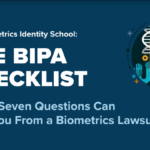A recent investigative report by Reuters found that American drugstore chain Rite Aid Corp had been using facial recognition technology in 200 of its stores across the United States, with the vast majority of the deployments focused in predominantly non-white lower income neighborhoods in Los Angeles and Manhattan.

Investigators with Reuters found that 33 of the 75 Rite Aid locations in Manhattan and central L.A. had the facial recognition systems installed, and according to the report, areas that featured lower income populations or those that were predominantly non-white were between three and six times more likely to have the systems installed than wealthier areas with a higher white demographic.
The system by the retailer worked by matching the facial images of customers entering the store to the faces of individuals that had been previously flagged by Rite Aid personnel as having engaged in potential criminal activity. Once a person was flagged, an alert would be sent to security agents’ smartphones, and upon reviewing and verifying the match themselves, they would ask the customer to leave.
Rite Aid recently ended its use of the technology, saying that the reason for doing so had to do with the “larger industry conversation” that is currently happening.
“Other large technology companies seem to be scaling back or rethinking their efforts around facial recognition given increasing uncertainty around the technology’s utility,” a spokesperson for the retailer told Reuters in a statement.
Over the past year the conversation over banning or at least regulating the use of facial recognition technology has become more prominent around the world. Some cities, like San Francisco, have banned its use for surveillance, while others are placing moratoriums on it.
The ethics around facial recognition have also been heavily debated as of late, due in part to high-profile stories like the Clearview AI case that the New York Times broke in January, and a NIST study that revealed how many facial recognition algorithms can be heavily biased against people of color and women.
The last year has also marked a steady growth in lawsuits against corporations for using facial recognition systems, most notably in Illinois where the Biometric Information Privacy Act (BIPA) has been used to go after high profile names like Google, Facebook, Amazon, and Rite Aid’s competitor Wallgreens.
The Reuters report also reveals that in 2018, Rite Aid changed the vendor of the facial recognition technology from American investor-backed FaceFirst to DeepCam LLC., a company with links to the Chinese government.
Reuters, however, says that it found no evidence that biometric data collected by Rite Aid was ever sent to China and a spokesperson from the Chinese Ministry of Foreign Affairs said, “These are unfounded smears and rumors,” when asked to comment.
Source: Reuters
–
July 29, 2020 – by Tony Bitzionis








Follow Us